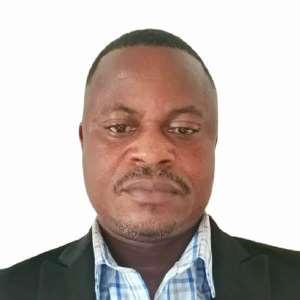
A renowned human rights activist and development advocate, Raphael Godlove Ahenu, says the chieftaincy institution remains one of the country’s oldest and most respected pillars of governance, culture, and unity, and must be protected from actions that could erode public confidence in its relevance.
He is therefore calling on traditional leaders across Ghana to uphold the dignity, sacredness, and revered status of the chieftaincy institution.
In a statement issued on Friday, Mr. Ahenu, who is the Founder and CEO of Global Media Foundation, expressed deep concern over recent developments and behaviours exhibited by some chiefs that, in his view, undermine the integrity of the institution. He noted that certain actions — ranging from involvement in partisan politics, public disputes, to questionable alliances — threaten to tarnish the noble image of traditional leadership.
“The chieftaincy institution in Ghana is revered and sacred. It is an embodiment of our heritage, customs, and values. Chiefs are seen as custodians of our culture and agents of peace, and it is imperative that they conduct themselves in a manner that commands respect from their subjects and the broader society,” Mr. Ahenu stated.
He further urged traditional leaders to desist from acts that could bring their stools into disrepute and instead focus on promoting peace, unity, and development within their communities. “Ghanaians look up to our chiefs not only as symbols of tradition but as mediators in conflicts, champions of development, and preservers of our moral fabric. Any conduct contrary to these expectations is deeply worrying and must be addressed,” he added.
Mr. Ahenu called on the National and Regional Houses of Chiefs to strengthen internal mechanisms to check members’ conduct and uphold the ethics and responsibilities associated with the chieftaincy institution. He also appealed to the government and civil society to support efforts aimed at preserving the sanctity of traditional leadership.
“As a nation, we cannot allow the actions of a few to erode centuries of respect and trust in the chieftaincy institution. Our chiefs must remain above reproach, serve as role models, and work together to safeguard this invaluable institution for future generations,” Mr. Ahenu concluded.
The call comes as public discourse has increasingly focused on the role of chiefs in contemporary governance and the need for reforms to align traditional authority with modern society’s demands.


